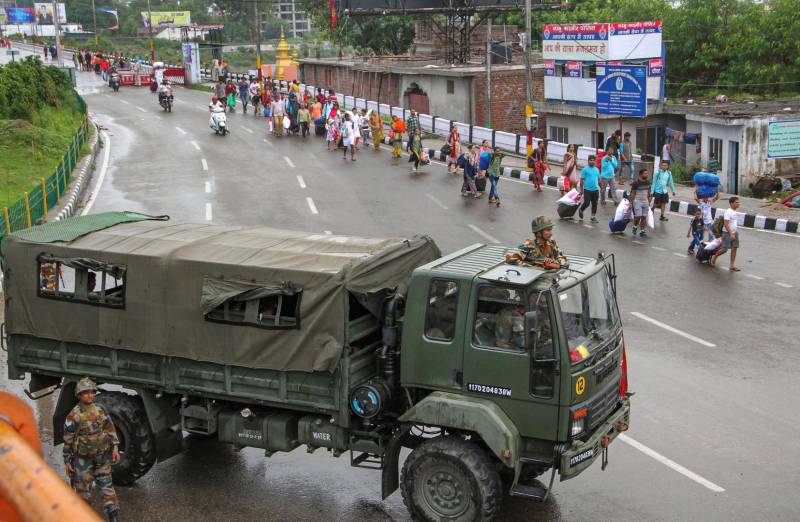Tourism in Kashmir at an all-time low post 370 scrapping
By Newsmeter Network
Srinagar: Fifty-year-old Javed Ahmad has been idle for the past one month since Article 370 was abrogated and the state of Jammu and Kashmir were divided into two union territories. The taxi owner in Srinagar bought a new Toyota car for tourists at the start of the Amarnath yatra in July with the hope for a good business season. It cost him 20 lakh rupees. He paid ten lakhs and took out a bank loan of another 10 lakh rupees. But all his hopes were dashed, right in the middle of tourist season, when the announcement about Artice 370 came in. The restrictions on the movement of traffic has hit the economy and has halted all functioning in Kashmir.
“I haven’t been able to pay my EMI. I am facing huge losses. I have never seen such a bad situation in my last 20 years as a transporter, I used to earn 2500 rupees per day but since the abrogation of Article 370 I haven’t earned anything”, Javed Ahmad said.
Javed is not alone. Hundreds of tourist transporters have now been jobless for the last one month. There are hardly any tourists in Kashmir and the people associated with the tourism trade do not expect to see the situation in Kashmir normalising anytime soon.
“Our taxi stand would fetch a revenue of five lakh rupees each day, but now the revenue has come down to zero,” said Parvez Ahmad another taxi driver.
Life on Dal lake has come to a grinding halt. Shikaras and houseboats are empty. Before the abrogation of Article 370, it was a bustling tourist spot with tourists going for Shikara rides in large numbers. But there are no tourists now and hence there is no business.
Irfan Ahmad, a Shikara Wala on Dal lake says he is unemployed and has exhausted all his saving. He hasn’t had a single customer since the abrogation of Article 370. According to Irfan, all the tourists at Dal Lake were evicted by the police ahead of the revocation of Article 370.
“I used to earn thousand rupees in a day from my Shikara, but today I don’t earn a single rupee; the situation is worse than what it was post the killing of Burhan Wani. We don’t know when this phase of lockdown will end in Kashmir”, said Irfan Ahmad.
Many Shikara Walas have switched to selling vegetables on the banks of Dal Lake to earn their livelihood. These vegetable vendors are drawing in a lot of people in a situation when most vegetable markets and shops are closed.
“It is a good way to earn our livelihood at a time when there are no tourists who want to go for Shikara rides; till the time tourists start returning we will be selling vegetables”, said Rauf Ahmad, a Shikara Wala turned vegetable vendor at Dal lake.
But the exodus of tourists and an atmosphere of uncertainty has hit Kashmir’s hotel industry the most. A hotel in Dalgate has stopped all its operations. With occupancy rate slipping down to zero, the hotel owner has retrenched most of his staff.
“Out of 30 employees, we are only left with seven employees, other staff members have been asked to remain off the payrolls temporarily”, said Feroz Ahmad hotel manager.
Restrictions on public movement and a communication gag have made it all the more difficult for the hotels to run their operations. Hoteliers say that have incurred losses in lakhs since the lockdown in Kashmir.
“We have 30 rooms in our hotel, all of those would be sold out in any tourism season, but this season not a single room is taken, it is a loss of 60,000 rupees per day”, Feroz Ahmad added.
Tourism is the backbone of Kashmir’s economy. Lakhs of people associated with the hospitality and tourism industry have been affected by the ongoing situation in Kashmir. While there aren’t any exact figures about the losses incurred after the scrapping of Article 370, industry experts say the losses could run in hundreds of crores. And till the time Kashmir remains on lockdown and restrictions are in place, economic losses are bound to increase.